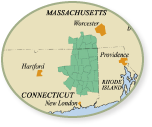
Avian Influenza Resources
Here at The Last Green Valley we are NOT experts on avian influenza. Our efforts here are to collect the important and most up to date information and share it with you. There are resources and information available regarding avian influenza, its current status and what to do if you spot a sick or dead bird. We will keep this post updated with the latest resources we have found.
In Connecticut if you have seen a group of wild dead birds (generally five or more) or have spotted birds dying in the same area, please call the CT DEEP Wildlife Division at 860-424-3011. AND you are asked to fill out the wild bird mortality database form here: https://www.cfwwildbirdmortalityreporting.ct.gov/
CT DEEP urges that no one should attempt to collect a dead bird on ice or in a dangerous location. According to DEEP if a bird is dead on your property the best method for disposal is:
“Avoid direct contact with the bird. Wear gloves or use a shovel to place the bird in a plastic bag. If you do not have gloves, put your hand inside a plastic bag, grab the bird through the bag and pull the bag back over your hand. Tie the bag off, place that bag into a second plastic bag and tie that bag off as well. Spray the outside of the second bag with a 10% bleach solution as well as the area where the dead bird was found, any implements used to collect the bird, and any boots or shoes that were worn while disposing of the dead bird. Double-bagged dead birds should be disposed of in the trash. Always wash hands thoroughly after disposal.”
The Connecticut Department of Agriculture is monitoring avian influenza in poultry, including backyard flocks. To report sick domestic birds, including unexplained high number of deaths, sudden drop in egg production, or sudden reduction in feed or water intake, contact the State Veterinarian at 860-713-2505 or ctstate.vet@ct.gov or the USDA at 866-536-7593.
More Connecticut Resources:
https://portal.ct.gov/deep/wildlife/avian-influenza
https://portal.ct.gov/doag/regulatory/regulatory/avian-influenza-information
In Massachusetts the Department of Agricultural Resources offers guidance at this link: https://www.mass.gov/info-details/avian-influenza
To report five or more dead birds in the wild or any deceased bald eagle, peregrine falcon or snowy owl please use this form: https://www.mass.gov/forms/report-observations-of-dead-wild-birds
To report sick or dead poultry in Massachusetts please use this form: https://www.mass.gov/forms/poultry-disease-reporting-form
FOOD SAFETY
According to the Centers for Disease Control (CDC), cooking eggs and poultry to an internal temperature of 165˚F kills bacteria and viruses, including avian influenza A viruses. People should separate uncooked (raw) poultry from cooked foods and foods that won’t be cooked. Cook all poultry and poultry products (including eggs) all the way before eating.
National Resources
- USDA Defend the Flock Resource
- Secure Egg Supply Plan
- CDC’s Healthy Pets Healthy People: Backyard Poultry
- CDC Coops: Doja Chick
Get Connected
Sign up for our newsletter



